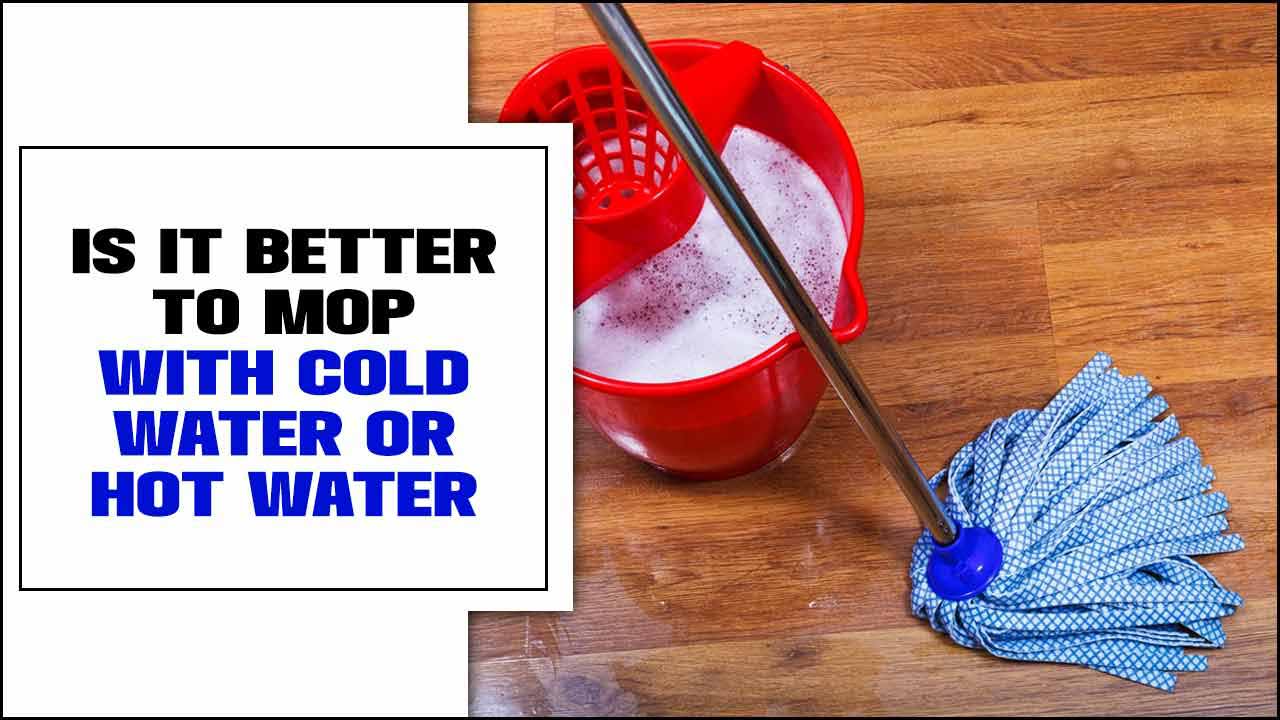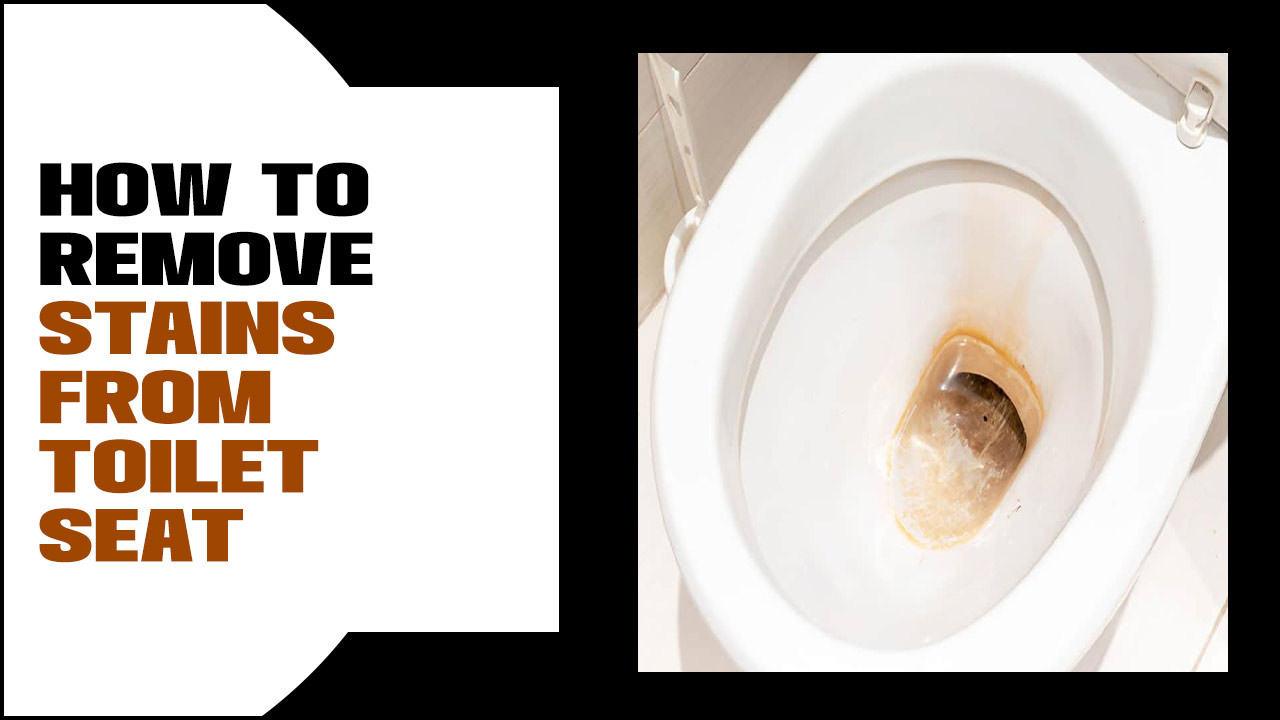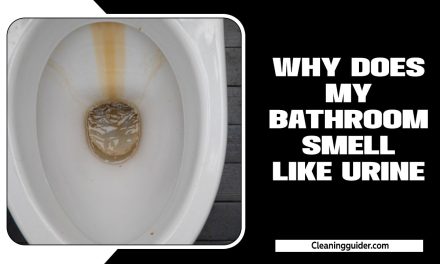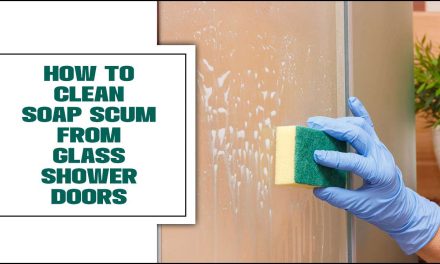Black mold in the shower is not only unsightly, but it can also pose serious health risks. The warm and moist environment of a shower is the perfect breeding ground for this type of mold, and it can quickly spread if not properly addressed.
Not only can it cause allergies and respiratory issues, but it can also weaken the structure of your shower and lead to costly repairs. Fortunately, there are effective ways to get rid of black mold in the shower and prevent it from coming back.
Here, we will discuss the causes of black mold in the shower, the potential health risks associated with it, and most importantly, the step-by-step process of how to get rid of black mold in shower. By following these tips, you can ensure a clean and healthy shower environment for you and your family.
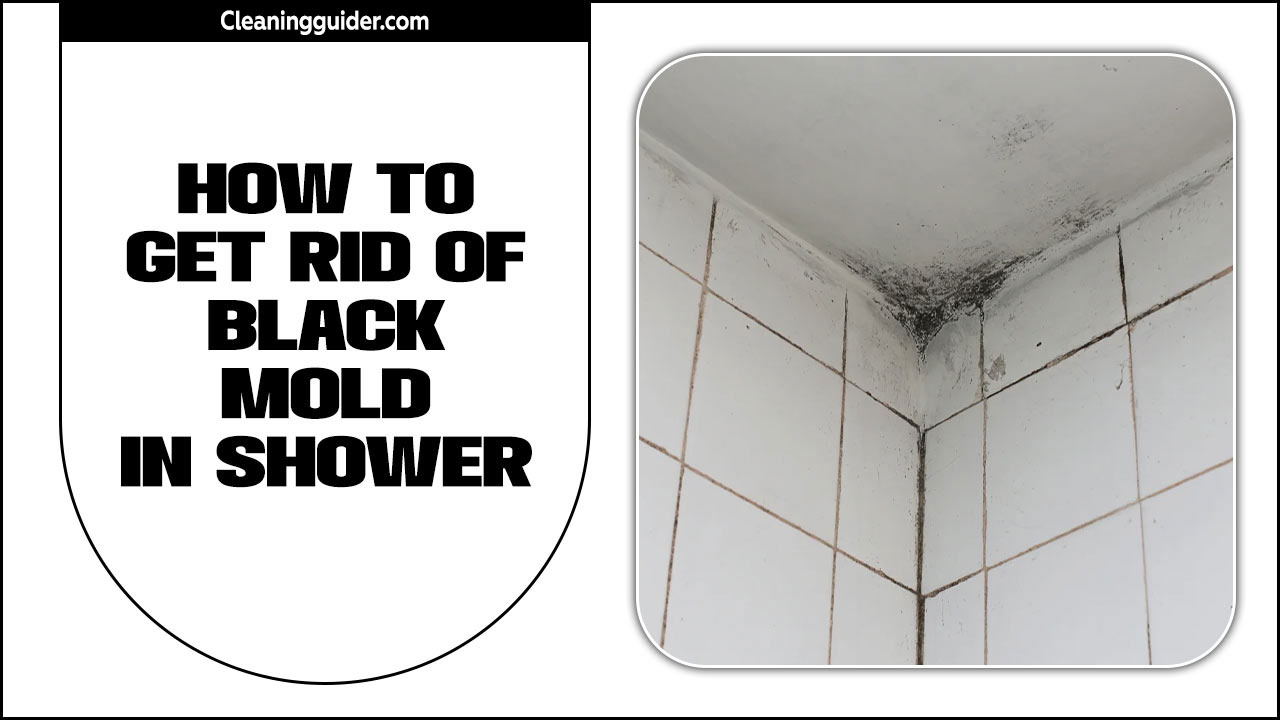
Tools And Materials Needed
To effectively get rid of black mold in your shower, you will need a few tools and materials. Gather some rubber gloves to protect your hands from mold and any cleaning agents you may use. Additionally, you will need a face mask to prevent inhaling any mold spores while cleaning. Grab a scrub brush or sponge to physically remove the mold from the surface. Information on Tools and Materials Needed for Black Mold In Shower:
- Protective Gear: It is important to wear gloves, safety goggles, and a mask to protect yourself from the harmful effects of black mold spores.
- Cleaning Solution: Choose a cleaning solution specifically designed to remove black mold. Look for products that contain ingredients like bleach, hydrogen peroxide, or vinegar, as they are effective against mold growth.
- Scrub Brush Or Sponge: Use a stiff-bristled brush or sponge to scrub away the black mold from the affected areas. Ensure that the brush or sponge is clean and free from any other contaminants.
- Plastic Bags Or Trash Bags: Dispose of any moldy materials, such as shower curtains or caulk, in sealed plastic bags to prevent the spread of mold spores.
- Bleach Or Hydrogen Peroxide: These chemicals can be used to disinfect and kill remaining mold spores after the initial cleaning.
How To Get Rid Of Black Mold In Shower – 12 Easy Ways
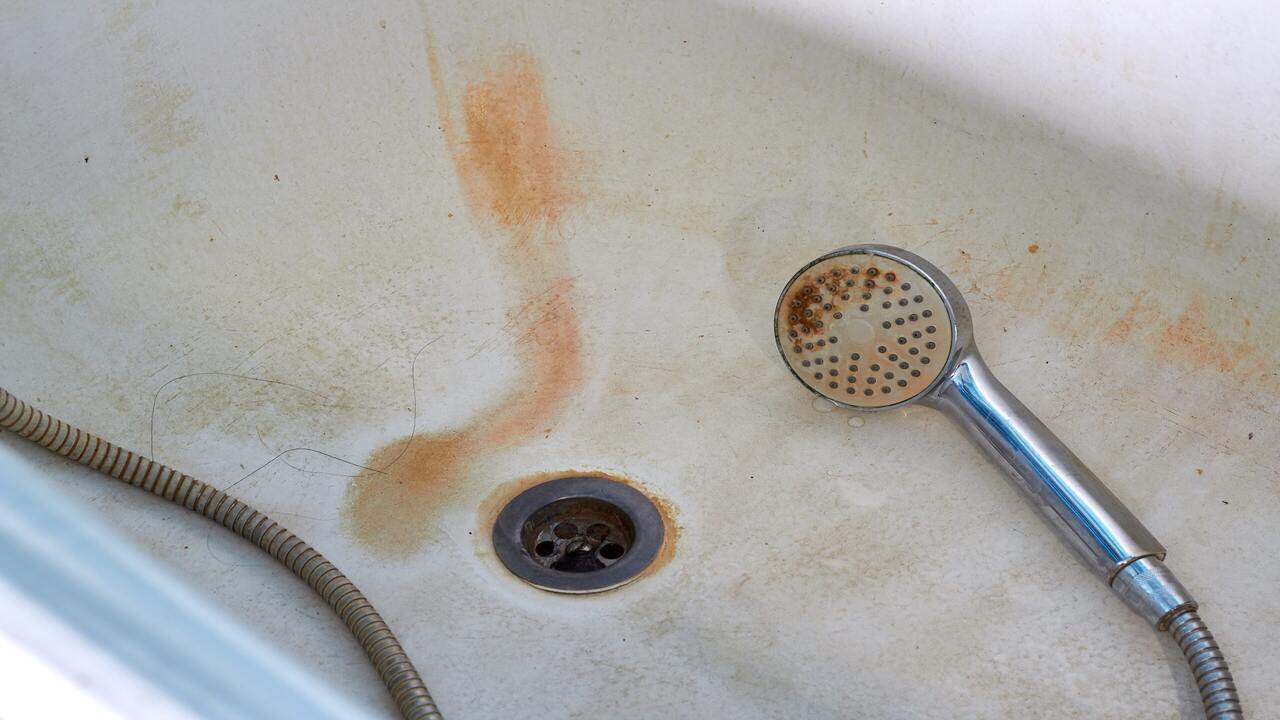
Here is are discuss on how to get rid of black mold in shower. Black mold in showers is a common problem that many homeowners face. It is a type of fungus that thrives in moist and humid environments, making bathrooms an ideal breeding ground. This mold can be identified by its dark, slimy appearance and musty odor. Not only is it unsightly, but it can also pose serious health risks.
When left untreated, black mold in showers can release spores into the air, which can be inhaled and cause respiratory problems, allergies, and even infections. It is crucial to address this issue promptly to prevent further damage to both the shower and the health of the occupants.
Getting rid of black mold in the shower can be a challenging task, but with the right methods, it is possible to eliminate and prevent its growth. Here are 12 easy ways to get rid of black mold in the shower:
1.Use Bleach
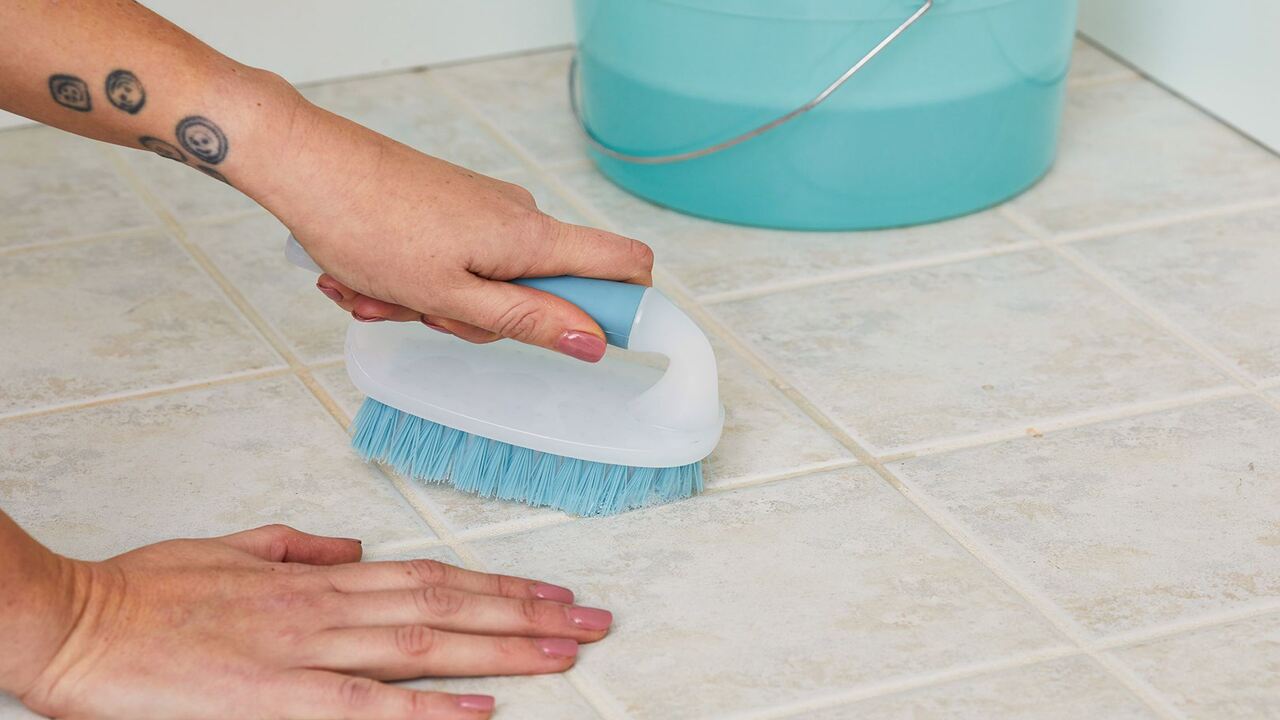
Mix equal parts bleach and water, then scrub the affected areas with a brush or sponge. Be sure to wear gloves and a mask to protect yourself from the fumes. Start by spraying the mixture onto the black mold, ensuring that it is completely saturated. Allow it to sit for about 10 minutes to penetrate the mold.
Use the brush or sponge to scrub away the mold, applying firm pressure. Rinse the area thoroughly with clean water to remove any remaining bleach residue. It is important to ventilate the bathroom during and after this process to minimize exposure to the strong bleach odor.
Regularly cleaning and drying the shower after each use will help prevent future mold growth. Additionally, consider installing a ventilation fan to reduce moisture build-up in the bathroom. By following these steps, you can effectively eliminate black mold from your shower and maintain a clean
2.Vinegar

Spray vinegar directly onto the moldy areas and let it sit for an hour before scrubbing. After spraying vinegar onto the moldy areas, it is important to let it sit for at least an hour. This allows the vinegar to penetrate the mold and break it down effectively. During this time, the acidic properties of the vinegar work to kill the mold spores and prevent further growth.
Once the hour has passed, take a scrub brush or sponge and vigorously scrub the affected areas. The combination of vinegar and scrubbing will help to remove the black mold and its stains from the surface of the shower. Remember to wear gloves and ensure proper ventilation while doing this task to minimize any potential health risks associated with mold exposure.
3.Baking Soda
Create a paste by mixing baking soda and water, then apply it to the moldy areas and scrub. Let the paste sit for a few minutes to allow the baking soda to work its magic in breaking down the black mold. Afterward, use a brush or sponge to scrub the affected areas vigorously. Make sure to pay special attention to hard-to-reach corners and grout lines where mold tends to thrive.
Once the scrubbing is complete, rinse the shower thoroughly with water and wipe away any residue. This method is a safe and effective way to get rid of black mold in your shower, as baking soda is a natural and non-toxic cleaner that also helps to eliminate odors. Repeat this process regularly to prevent future mold growth and maintain a clean and healthy shower environment.
4.Hydrogen Peroxide
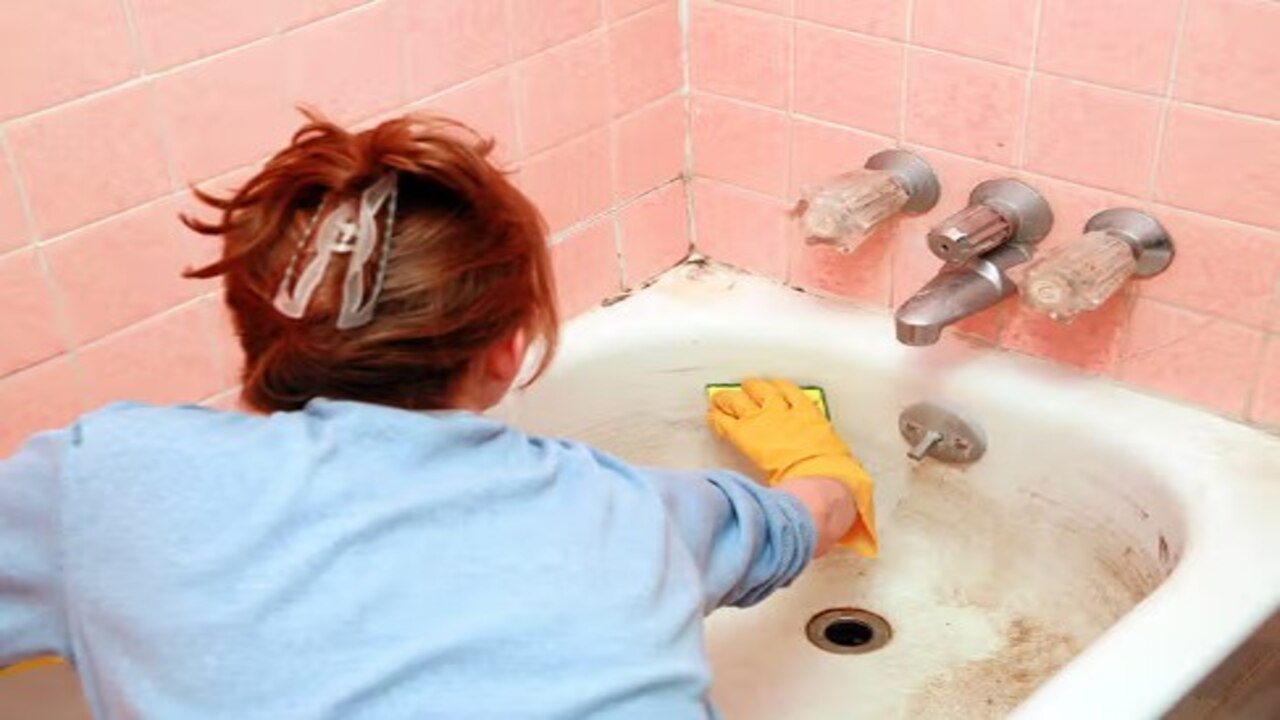
Spray hydrogen peroxide onto the moldy areas and let it sit for 10 minutes before rinsing. This powerful solution is an effective way to kill black mold in your shower. Hydrogen peroxide is a natural disinfectant that can penetrate the mold’s surface and destroy the spores, preventing them from spreading further. To use it, simply fill a spray bottle with hydrogen peroxide and generously spray it onto the affected areas.
Allow it to sit for about 10 minutes, giving it enough time to work its magic. Afterward, use a scrub brush or sponge to gently scrub away the mold, making sure to cover all the nooks and crannies. Finally, rinse the area thoroughly with water to remove any leftover residue. By following these steps, you can effectively get rid of black mold in your shower and restore a clean and healthy environment
5.Tea Tree Oil
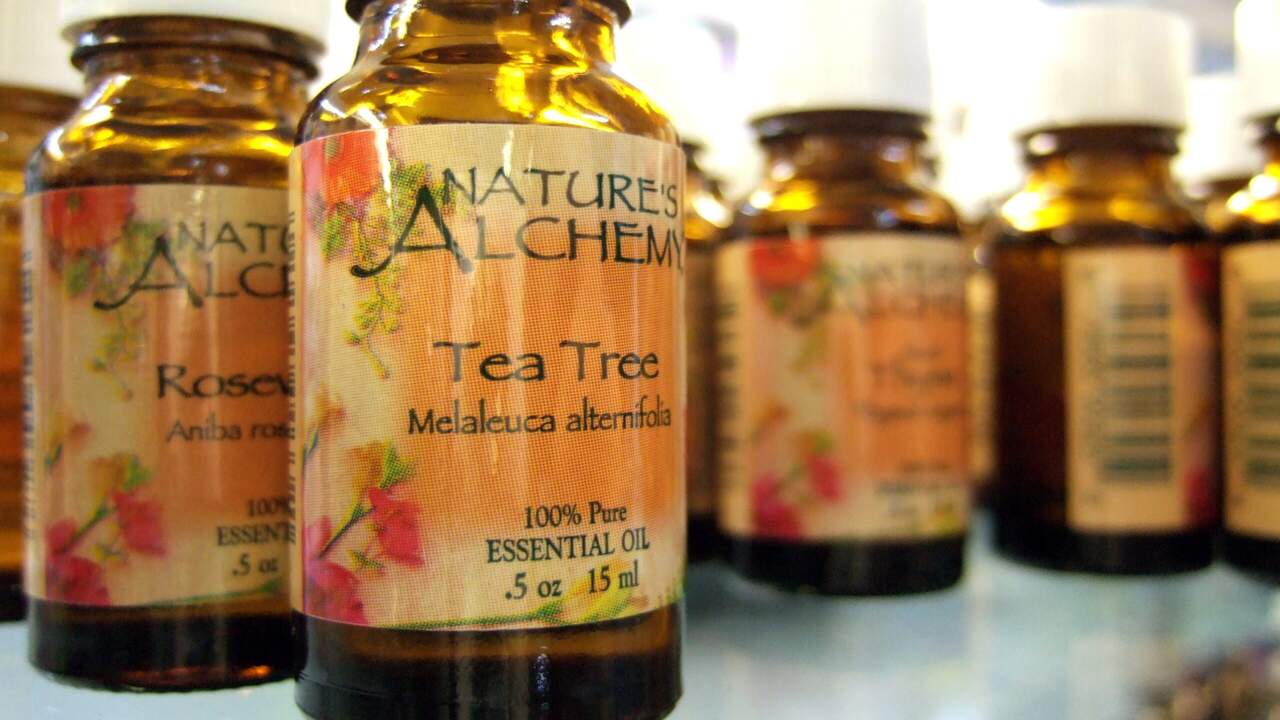
Mix a teaspoon of tea tree oil with a cup of water and spray it onto the moldy areas, then scrub. Alternatively, you can use a mixture of vinegar and baking soda to tackle black mold in your shower. Start by pouring some vinegar into a spray bottle and spraying it onto the affected areas. Let it sit for a few minutes to allow the vinegar to penetrate the mold. Next, create a paste using baking soda and water, and apply it to the moldy spots.
Use a scrub brush or a toothbrush to gently scrub away the mold. Rinse the area thoroughly with water and repeat the process if necessary. Another effective method is using hydrogen peroxide. Just pour some hydrogen peroxide onto a clean cloth or sponge and wipe down the moldy areas. Allow it to sit for about 10 minutes before rinsing off with water. Regularly cleaning
6.Grapefruit Seed Extract
Mix 20 drops of grapefruit seed extract with two cups of water, then spray it onto the moldy areas and let it sit for 30 minutes before rinsing. Another effective method to eliminate black mold in the shower is by using hydrogen peroxide. Dilute a solution of 3% hydrogen peroxide with water in a spray bottle and apply it directly onto the affected surfaces.
Allow the solution to sit for around 10 minutes before scrubbing the area with a brush or sponge. Rinse thoroughly to remove any remaining mold spores. It is important to wear protective gloves and ensure proper ventilation when using hydrogen peroxide. Additionally, regularly cleaning and drying the shower after each use can help prevent the growth of black mold.
7.Borax
Mix one cup of borax with a gallon of water, then scrub the moldy areas. Make sure to wear gloves and a mask to protect yourself from the spores. Use a scrub brush or sponge to apply the borax solution onto the black mold in the shower. Scrub the affected areas thoroughly, making sure to reach all the nooks and crannies where the mold may be growing.
Allow the borax solution to sit on the moldy surfaces for at least 30 minutes to an hour. This will help loosen the mold and kill any remaining spores. After the designated time, rinse the shower thoroughly with clean water to remove the borax solution and the mold. Repeat this process, if necessary, until all traces of black mold have been eliminated. Regularly cleaning and maintaining your shower can also prevent the growth of black mold in
8.Ammonia
Mix equal parts ammonia and water, then scrub the affected areas with a brush or sponge. Make sure to wear gloves and a mask to protect yourself from the strong fumes. Prior to applying the ammonia solution, it is essential to thoroughly ventilate the bathroom by opening windows or using a fan. Start by saturating the moldy areas with the mixture and allow it to sit for a few minutes to penetrate the mold.
Then, using a brush or sponge, scrub the affected surfaces vigorously, paying close attention to any hard-to-reach corners or crevices. Rinse the area thoroughly with water afterward to remove any residue. It is important to repeat this process regularly to prevent the mold from returning. Additionally, ensuring that the shower is well-ventilated and keeping it dry after each use will help prevent the growth of black mold in
9.Dish Soap
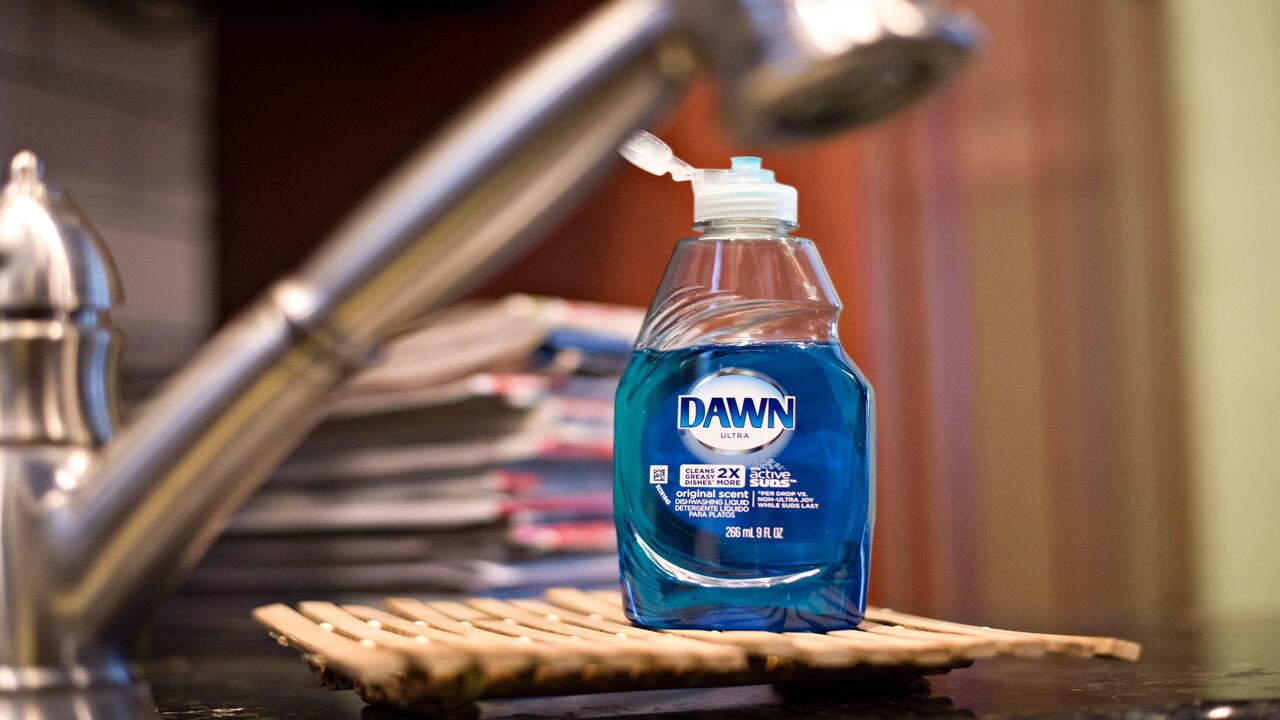
Mix dish soap with warm water, then scrub the moldy areas with a brush or sponge. After you have prepared the mixture of dish soap and warm water, it is time to tackle the black mold in your shower. Start by dipping a brush or sponge into the soapy solution and begin scrubbing the affected areas.
Be sure to apply enough pressure to remove the mold, but be cautious not to damage the surface of your shower. Work in circular motions, focusing on the moldy spots until you see the mold starting to loosen and break apart. Rinse the brush or sponge frequently to prevent spreading the mold to other areas of the shower.
10.Non-Toxic Mold Cleaners
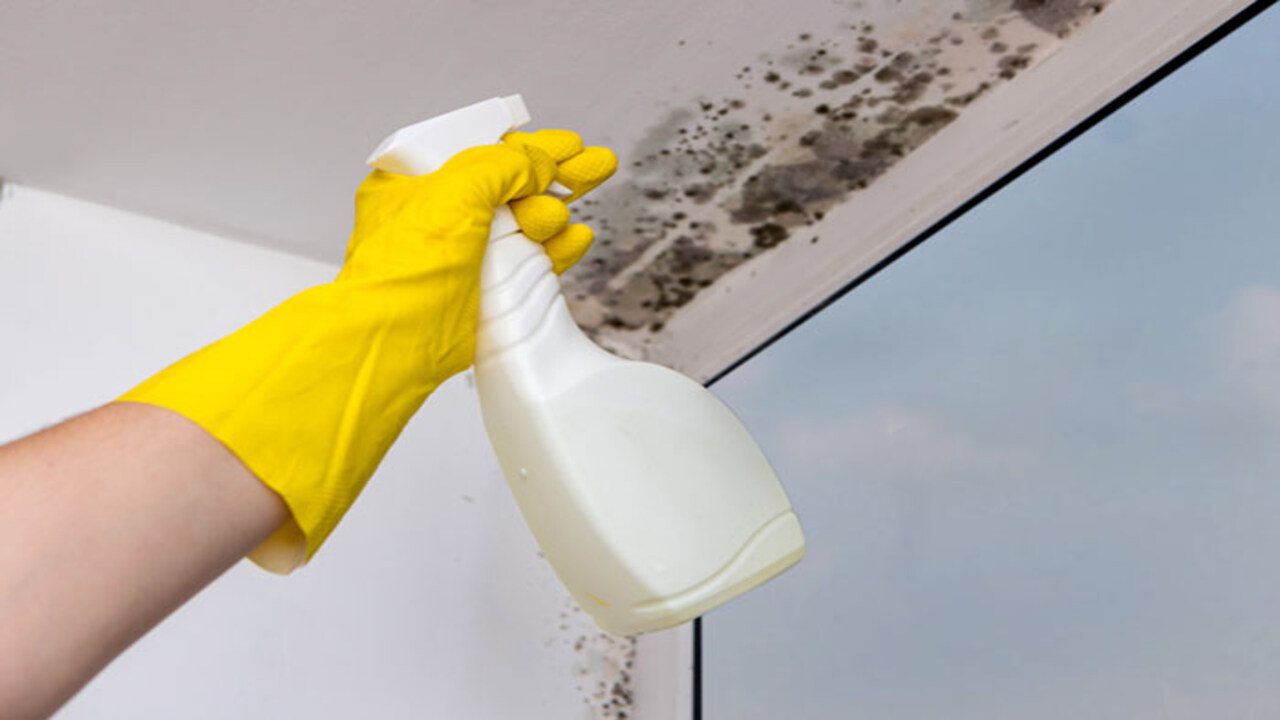
There are various non-toxic mold cleaners available on the market that can effectively remove black mold without harsh chemicals. One option is to use a vinegar solution. Mix equal parts white vinegar and water in a spray bottle and generously spray the affected areas. Let it sit for a few hours to allow the vinegar to penetrate the mold, and then scrub the surface with a brush or sponge.
Rinse the area thoroughly with water and repeat the process if necessary. Another natural alternative is to use hydrogen peroxide. Fill a spray bottle with 3% hydrogen peroxide and spray it directly on the mold. Let it sit for about 10 minutes to allow it to kill the mold spores, then scrub the area with a brush or sponge. Rinse the surface with water and wipe it dry.
11.Increase Ventilation
Ensure that your bathroom has proper ventilation to prevent moisture buildup, which can contribute to mold growth. If your bathroom does not have a window, consider installing an exhaust fan to remove excess moisture. Additionally, regularly clean and dry the shower area to discourage the growth of mold.
Use a mixture of bleach and water or a commercial mold removal product to scrub away any visible mold. Pay special attention to corners, grout lines, and areas where water tends to accumulate. It’s important to wear protective gloves and a mask while cleaning to avoid inhaling mold spores.
After cleaning, thoroughly rinse the shower and dry it completely to prevent any remaining moisture from promoting mold regrowth. Lastly, keep an eye out for any signs of moisture or mold in the future, and address them promptly to maintain a clean and mold-free shower environment.
Preventing Black Mold Growth In The Future
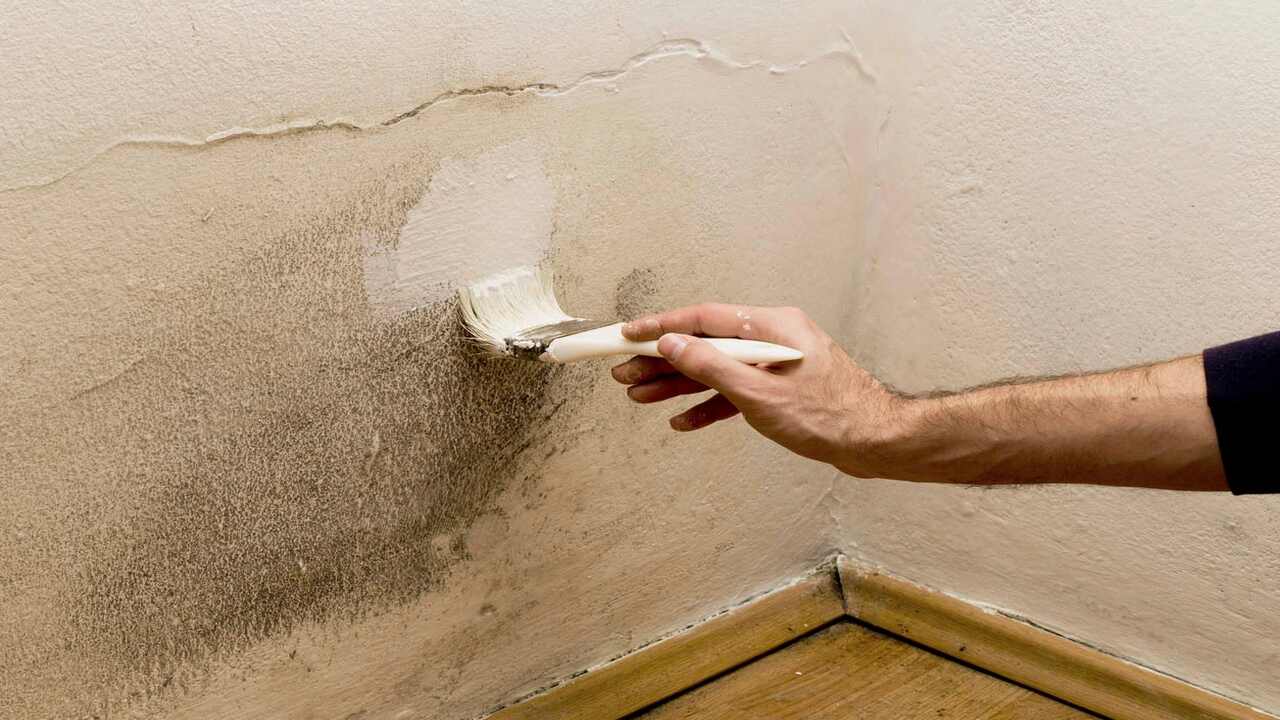
it is crucial to understand the factors that contribute to its development and take necessary measures to address them. Black mold, also known as Stachybotrys chartarum, thrives in damp and humid environments, making it essential to maintain proper ventilation and moisture control in buildings. Regular inspections and prompt repairs of any leaks or water damage are imperative to prevent mold growth. Preventing Black Mold Growth in the Future:
- Keep The Shower Area Clean And Dry: After using the shower, make sure to wipe down the walls, tiles, and floor to remove any moisture. This will help prevent mold from finding a suitable environment to grow.
- Improve Ventilation: Ensure that your bathroom has proper ventilation by using an exhaust fan or opening a window while showering. This helps to remove excess humidity and prevent mold growth.
- Fix Any Leaks: Regularly inspect your shower area for any leaks or water damage. Repair any leaks promptly to prevent moisture from seeping into the walls or floor, which can lead to mold growth.
- Use Mold-Resistant Products: Consider using mold-resistant paint or sealant in your shower area. These products are designed to inhibit mold growth and can provide an extra layer of protection.
- Clean Regularly: Regularly clean your shower area to remove any soap scum, dirt, or other organic materials that can serve as a food source
Hiring Professionals For Black Mold Remediation
Hiring professionals for black mold remediation is highly recommended when dealing with black mold in your shower. Black mold, also known as Stachybotrys chartarum, is a toxic type of mold that can pose serious health risks if not properly removed and remediated.
Professional mold remediation companies have the expertise, experience, and specialized equipment necessary to safely and effectively remove black mold from your shower. They will follow proper protocols and take necessary precautions to contain the mold, prevent its spread, and ensure the safety of you and your home.
When hiring professionals for black mold remediation, it is important to choose a reputable and certified company. Look for companies that are licensed, insured, and experienced in dealing with black mold specifically. They should also follow industry standards and guidelines set by organizations such as the Environmental Protection Agency (EPA) and the Institute of Inspection, Cleaning and Restoration Certification (IICRC).
Conclusion
black mold in the shower is a common issue that can be easily remedied with the right knowledge and products. To start the process of getting rid of black mold in the shower, it is important to gather the necessary tools and materials. These may include gloves, a mask, goggles, a scrub brush, a spray bottle, and a cleaning solution specifically designed for mold removal.
Before beginning the cleaning process, it is crucial to ensure proper ventilation by opening a window or running a fan. By following these steps and utilizing effective cleaning methods, you can successfully get rid of black mold and prevent it from returning.
Remember to always prioritize your safety by using protective gear and properly ventilating the area. If the mold persists or appears to be extensive, it is best to seek professional help to ensure a thorough and safe removal process. With diligence and proper maintenance, you can keep your shower clean and mold-free for a healthy and enjoyable bathing experience. We hope now you understand how to get rid of black mold in shower.
FAQs
1.What Are Some Effective Methods For Removing Black Mold From A Shower?
Ans: Some effective methods for removing black mold from a shower include using a mixture of bleach and water, hydrogen peroxide, vinegar, or baking soda. It is important to wear protective gloves and a mask when dealing with mold. Scrubbing the affected area with a brush and the chosen cleaning solution can help to remove the mold. Regularly cleaning and drying the shower, ensuring proper ventilation, and fixing any water leaks can also prevent future mold growth.
2.Are There Any Natural Or Homemade Remedies That Can Effectively Get Rid Of Black Mold In A Shower?
Ans: Yes, there are natural and homemade remedies that can effectively get rid of black mold in a shower. One common method is to create a mixture of equal parts white vinegar and water and spray it onto the affected areas. Let it sit for a few hours, then scrub the mold with a brush or sponge. Another option is to use hydrogen peroxide, which can be sprayed directly onto the mold.
3.What Are The Potential Health Risks Associated With Black Mold In A Shower?
Ans: Black mold in a shower can pose potential health risks. Exposure to black mold spores can lead to respiratory issues such as coughing, wheezing, and nasal congestion. It can also trigger allergies and asthma symptoms in individuals who are sensitive to mold. Prolonged exposure to black mold may cause more severe health problems, including chronic lung conditions and infections.
4.Are There Any Specific Cleaning Products Or Solutions That Are Recommended For Tackling Black Mold In A Shower?
Ans: Yes, there are specific cleaning products and solutions recommended for tackling black mold in a shower. Some effective options include bleach, hydrogen peroxide, vinegar, and commercial mold and mildew cleaners. It’s important to follow the instructions on the product and take necessary precautions, such as wearing gloves and ensuring proper ventilation.
5.What Preventative Measures Can Be Taken To Avoid The Growth Of Black Mold In A Shower In The First Place?
Ans: To prevent the growth of black mold in a shower, it is important to maintain proper ventilation. Keep the bathroom well-ventilated by using exhaust fans or opening windows during and after showering to reduce moisture buildup. Regularly clean and dry the shower area, including walls, tiles, and grout, to prevent mold from finding a suitable environment to grow.

